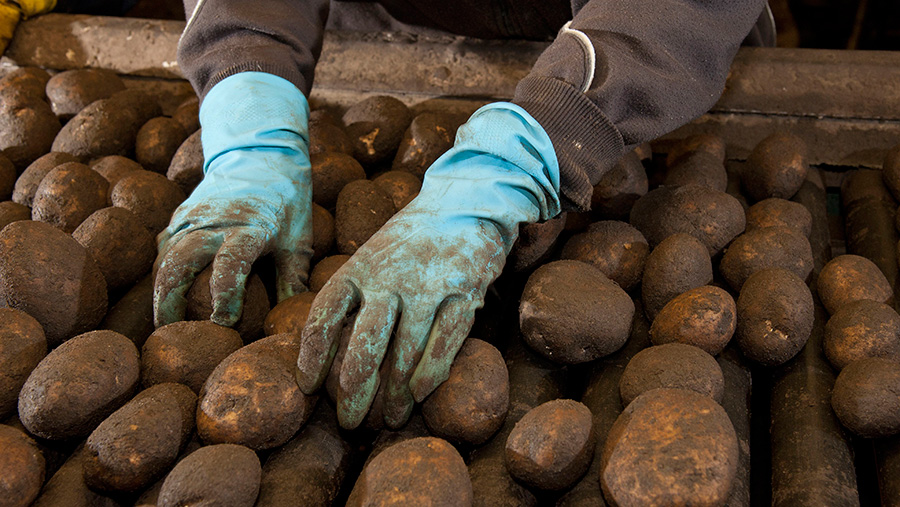Migrant worker salary plan ‘falls short’, say farm leaders
 © FLPA/REX/Shutterstock
© FLPA/REX/Shutterstock Recommendations to reduce the salary threshold for immigrants by more than £4,000 do not go far enough, say farm leaders.
Migrant workers arriving in the UK from outside the EU – including to work in farming – must currently have a job offer paying at least £30,000.
See also: 10-point plan for attracting the best farmworkers
But a report by the government’s Migration Advisory Committee says the threshold should be reduced to £25,600 for all workers – to help stem a labour shortage.
Farmers and food processors frequently recruit from overseas to fill key jobs.
The Country Land and Business Association described the report as a positive step, but said it did not go far enough in securing the needs of the rural sector.
Balance needed
CLA president Mark Bridgeman said the government needed to recognise that the industry required a balance of skilled and unskilled migrant workers.
“Many rural industries are facing labour shortages in low-skilled and low-paid sectors, threatening to damage businesses and limit economic growth,” he said.
“It is the government’s job to ensure rural businesses have access to the workers they need to operate.”
A new immigration system should be less rigid and recognise that some skills were not necessarily quantified with a certificate, said Mr Bridgeman.
The Food and Drink Federation (FDF) said the government should adopt a “going-rate” system that would allow businesses to recruit the talent they needed at all skill levels.
New recruits
FDF chief operating officer Tim Rycroft said the committee’s recommendation only partially reflected calls to lower the salary threshold along with the skills threshold.
“The new immigration system must also be accessible for the many food and drink manufacturers that would be recruiting via an immigration system for the first time.
“EU nationals currently make up one-quarter of our 430,000-person workforce, and a survey of our members showed that 95% employed EU nationals without the need for visas.
“Many of these will be small or medium-sized businesses that are unable to afford expensive legal fees, and the new system must be streamlined to reflect this.”
Hardest hit
The British Poultry Council (BPC) said the UK’s poultrymeat industry would be among those hit the hardest by the committee’s recommendations.
The £7.2bn poultrymeat sector is heavily reliant on overseas labour – with EU nationals making up some 60% of its 22,800-strong workforce, said BPC chief executive Richard Griffiths.
“It is more important than ever for the government to recognise the needs of the poultrymeat industry and enable the sector to continue feeding the nation their favourite meat.
“We cannot run the risk of creating a two-tier food system where we import food produced to lower standards and only the affluent can afford quality British produce.”
Poultry producers need access non-UK labour to fill 7,200 vacancies every year – and help ensure that the sector continues to flourish, said Mr Griffiths.
